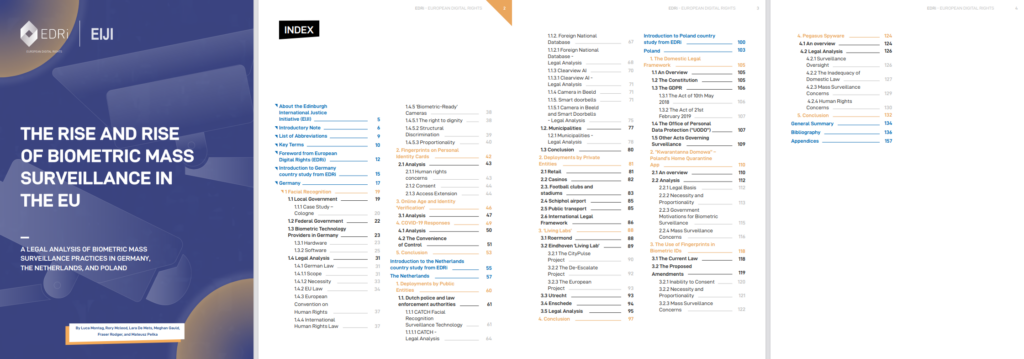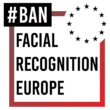NEW REPORT: Biometric mass surveillance in Germany, the Netherlands, Poland
People outside LGBTQ+ venues, religious buildings, doctor’s surgeries and lawyers’ offices in the German city of Cologne may have had their faces illegally captured. The Dutch cities of Roermond, Eindhoven, Utrecht and Enschede have been turned into experimental “Living Labs”, capturing vast amounts of data about residents and apparently using it to profile them. The Polish COVID-19 quarantine app not only captured people’s faces without good reason – but that this information may now have been abused by police to visit the homes of people no longer subject to quarantine rules. These are just some examples from a new report documenting evidence of biometric mass surveillance.
A new research report shows that in Germany, the Netherlands and Poland, biometric systems are increasingly being used to control people’s access to healthcare, sports venues, travel, shopping and other everyday activities. As a result, people are being given the false ‘choice’ to either submit their sensitive data, or be excluded from society. We don’t want to live in these societies of suspicion!
The report exposes how police in the Netherlands have allegedly paid people to share their private CCTV footage so that the police can apply facial recognition analytics to that footage. Chillingly, these practices may incentivise neighbours and communities to spy on each other. And shockingly, this strategy has allowed the police to create a loophole so that the usual laws which are designed to stop police abusing people’s biometric data no longer apply!
The evidence also shows how private companies have worked with local Dutch governments to turn whole cities into experimental ‘Living Labs’ which treat human beings as guinea pigs. They have done this supposedly to predict people’s levels of aggression or their life outcomes. Such judgements are baseless and unfair. And these practices are even more worrying given that the Dutch government have been repeatedly caught out for the discriminatory use of AI in the delivery of welfare and services.
In Germany, authorities in the city of Cologne have deployed facial recognition systems outside of LGBTQ+ venues, religious venues, doctor’s surgeries and lawyers’ offices without legitimate justification. People visiting those venues are likely to be associated to sensitive characteristics, such as their sexuality, religion or health status. By placing the spaces outside these venues under biometric mass surveillance, people’s rights to express freely, move without fear and be who they are – safe from discrimination – are really threatened. This fits broader patterns that we have been reporting on from across Europe, where people of colour, migrants, working class people and other minoritised communities are disproportionately subjected to harmful AI-based technologies.
In Poland, the police have misused the country’s facial recognition-based COVID-19 quarantine system to visit the homes of people after they have finished their quarantine. This shows exactly why we need to be so careful to make sure that supposedly ‘exceptional’ measures don’t get abused. The Polish government have also been accused of using spyware with the capability to surveil people’s biometric data, despite such spyware having been implicated in serious crimes against human rights defenders.
What can you do?
The only piece of good news is that we still have a chance to reverse these horrifying practices, and stop any new ones from happening. EU bodies are currently debating and negotiating new laws on artificial intelligence as part of the upcoming “AI Act”. This new legal framework will create rules on the development and use of AI in Europe – and it gives us a once-in-a-generation opportunity to concretely ban all biometric mass surveillance practices.



















































































